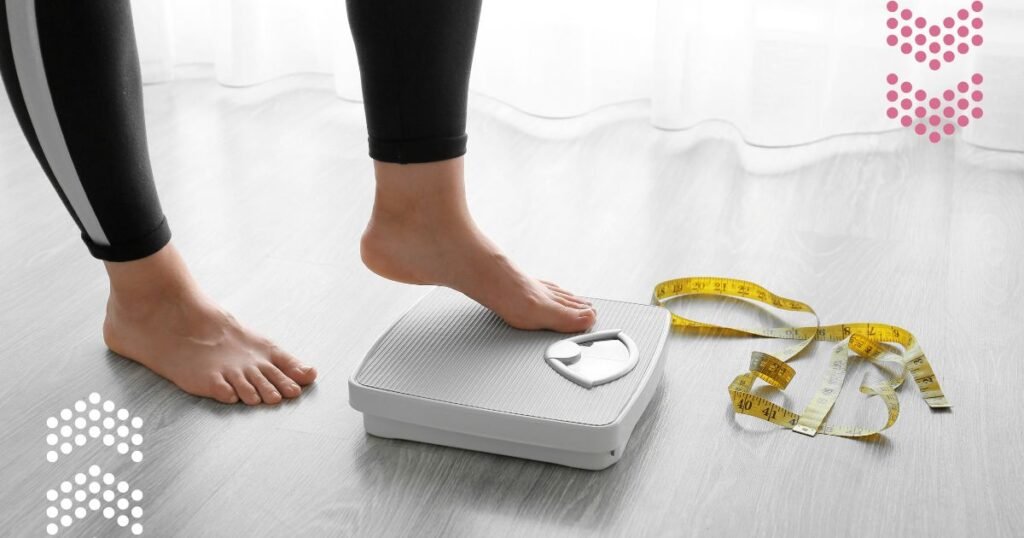The Psychological Impact of PCOS on Body Image and Motivation for Weight Loss in Women
Polycystic Ovary Syndrome (PCOS) is a common condition that affects millions of women worldwide, leading to a variety of symptoms. Among the most challenging of these are weight gain, hormonal imbalances, and physical changes, all of which can negatively impact a woman’s perception of her body. As a result, motivation for weight loss often diminishes, creating an ongoing cycle that is hard to break. Addressing the psychological effects of PCOS is just as important as managing the physical symptoms. Understanding this complex interplay is crucial for women looking to achieve their health and wellness goals.
Understanding PCOS and Its Effects on Body Image
PCOS Overview
Polycystic Ovary Syndrome is a hormonal disorder that disrupts normal bodily functions in women, particularly affecting the reproductive system. However, its impact extends far beyond reproduction. One of the most common symptoms of PCOS is weight gain, especially around the abdominal area, due to hormonal imbalances. Women with PCOS may experience difficulty losing weight, even with proper diet and exercise, which can deeply affect their physical appearance and body image. The inability to control these physical changes often contributes to a negative self-perception, particularly in a society that places a high value on appearance.
How PCOS Impacts Body Appearance
Weight gain associated with PCOS typically occurs in the abdomen, which can make it particularly noticeable. This central fat accumulation, along with other physical symptoms like acne and unwanted hair growth, can make women feel uncomfortable in their own skin. Acne and hirsutism (excessive hair growth in areas like the face and chest) further contribute to feelings of unattractiveness, which can severely impact a woman’s self-esteem.
Cultural and Social Pressures
Societal expectations of beauty, which often prioritize thinness, flawless skin, and hairlessness, place added pressure on women with PCOS. The visibility of PCOS symptoms makes it hard to conform to these standards, leading to feelings of inadequacy and insecurity. Media representation often reinforces these unrealistic body standards, making women feel like they are failing if they don’t fit into a narrow definition of beauty. This creates an environment where women with PCOS are more likely to struggle with body image and self-worth.
Emotional Consequences
As a result of these pressures, many women with PCOS suffer from anxiety and depression. The emotional consequences of PCOS can be severe, as feelings of hopelessness, frustration, and isolation build over time. Low self-esteem and poor body image can lead to social withdrawal and a reluctance to engage in activities that would otherwise promote well-being, such as exercise and socializing. The mental health impact of PCOS can’t be overstated, as it often leads to a diminished quality of life if left unaddressed.
The Psychological Struggles of Weight Loss for Women with PCOS
Weight Loss Resistance
Women with PCOS face unique challenges when trying to lose weight. Hormonal imbalances make it harder to shed pounds, even when following a strict diet and exercise routine. This is because insulin resistance is common in women with PCOS, which means their bodies have a harder time processing sugar, leading to fat storage, particularly around the abdomen. This can be incredibly frustrating, as women with PCOS may work just as hard, if not harder, than their peers without PCOS but see far fewer results. This discrepancy can lead to a sense of failure and contribute to a loss of motivation.
Turning to expert resources like weight loss guides for women can be helpful, but the uphill battle of weight loss resistance due to PCOS remains a significant challenge.
Frustration and Motivation
Because women with PCOS often experience minimal results from traditional weight loss efforts, frustration quickly sets in. Many women feel like no matter what they do, they won’t succeed. This constant struggle can make it difficult to maintain the motivation needed to continue exercising and eating well. Over time, the mental toll of trying and failing leads to a decreased sense of self-worth, which in turn affects other areas of life, such as work, relationships, and overall mental health.
Fear of Judgment and Stigma
Another significant barrier is the fear of judgment. Women with PCOS may avoid gyms or weight loss programs because they fear being judged for their appearance or their inability to lose weight quickly. Stigma around weight and body image is pervasive, and women with PCOS are often more self-conscious because of the visible effects of the condition. This fear can prevent them from engaging in helpful physical activities or seeking out support that could improve their health and well-being.
Emotional Eating and PCOS
In some cases, the psychological distress caused by PCOS leads to emotional eating. Many women use food as a coping mechanism to deal with stress, sadness, or frustration. However, emotional eating only worsens the problem, contributing to further weight gain and an ongoing cycle of guilt and shame. This vicious cycle of emotional eating and weight gain is difficult to break, particularly when it is compounded by the hormonal challenges of PCOS.
How PCOS-Related Body Image Issues Affect Motivation for Weight Loss
Low Self-Esteem as a Barrier
Low self-esteem, rooted in negative body image, is one of the biggest barriers to weight loss for women with PCOS. Women who do not feel good about their appearance are less likely to take steps to improve their health. This creates a feedback loop: poor body image leads to poor health choices, which in turn worsens body image.
Internalized Shame and Self-Worth
Many women with PCOS internalize shame about their weight and appearance, seeing themselves as flawed or inferior. This shame can deeply impact self-worth, making it difficult to pursue goals, including weight loss. Feelings of failure are common, and this can lead to a downward spiral where women stop trying to lose weight because they believe it’s impossible.
Comparing to Others
Women with PCOS often fall into the trap of comparing themselves to women without the condition. This can be damaging, as women with PCOS face unique challenges that make weight loss more difficult. Comparing themselves to others only serves to reinforce feelings of inadequacy, as they may not see the same physical changes despite putting in the same, or even more, effort.
Strategies to Improve Body Image for Women with PCOS
Developing a Positive Body Image
Improving body image starts with developing a healthier relationship with one’s body. Women with PCOS can benefit from practicing self-compassion, focusing on what their bodies can do rather than how they look. Body neutrality, which means accepting your body for what it is without focusing on its appearance, can be an effective way to shift perspective and improve self-esteem.
Mindfulness and Self-Care
Mindfulness practices, such as meditation, journaling, and body-positive affirmations, can help women reconnect with their bodies in a more loving and positive way. These practices encourage women to focus on how their bodies feel and function, rather than what they look like. This can lead to a more balanced and healthy outlook on body image, allowing women to engage in activities like exercise without feeling discouraged by their appearance.
Professional Support
Professional support, whether through therapy or support groups, can be incredibly beneficial for women struggling with body image issues related to PCOS. Therapists can help women address the underlying emotional issues that contribute to poor body image, while support groups offer a sense of community and understanding. These spaces allow women to share their experiences and offer support to one another, which can be incredibly empowering.
Finding a Fitness Community
Finding a supportive fitness community can make a world of difference for women with PCOS. Women-only fitness programs, such as those offered by ShapioX, create a safe and welcoming environment where women can work on their health without fear of judgment. These programs offer tailored support for women with PCOS, making it easier to stay motivated and achieve long-term success.
Building and Maintaining Motivation for Weight Loss with PCOS
Setting Realistic Goals
One of the most effective ways to maintain motivation is by setting realistic, achievable goals. Rather than focusing solely on weight loss, women with PCOS should set goals related to overall health, such as improving energy levels, increasing strength, or reducing symptoms of PCOS. These small victories can help boost confidence and create a sense of accomplishment.
Women can also find helpful strategies and tips through reputable sources like diet and weight loss plans that offer specific advice for those dealing with weight-related challenges due to PCOS.
Focus on Non-Scale Victories
Non-scale victories, such as better sleep, improved mood, or increased physical endurance, are just as important as the number on the scale. Focusing on these types of victories can help keep women motivated and positive, even when the scale doesn’t reflect their hard work. Celebrating these milestones can make the weight loss journey feel more rewarding and sustainable.
Creating a Tailored Approach
Each woman’s experience with PCOS is unique, so creating a personalized fitness and nutrition plan is crucial. Programs like ShapioX offer tailored solutions that consider the specific challenges women with PCOS face, such as insulin resistance and hormonal imbalances. A customized approach ensures that goals are realistic, attainable, and sustainable in the long term.
Staying Consistent with Support
Consistency is the key to success, and it’s easier to stay consistent when you have a strong support system. Women with PCOS should seek out accountability partners or join fitness communities where they can share their progress and challenges. Support systems help keep motivation high, especially during tough times when progress may be slower than expected.
The Importance of Self-Compassion and Acceptance
Reframing the Weight Loss Journey
Reframing weight loss as part of a broader health journey, rather than focusing solely on appearance, is essential for long-term success. Weight loss should not be the only measure of progress. Instead, focusing on overall health and well-being allows women to feel good about their efforts, regardless of what the scale says. This shift in mindset makes the process more enjoyable and less stressful.
Addressing Perfectionism
Perfectionism is a common struggle for women with PCOS, who often feel pressure to achieve the “perfect” body. Letting go of these unrealistic expectations can help reduce stress and create a healthier approach to weight loss. Women should focus on progress, not perfection, and celebrate small wins along the way.
Loving Your Body Through the Process
Self-love and acceptance are critical components of any successful weight loss journey. It’s important for women to appreciate their bodies for what they can do, rather than focusing solely on what they look like. Practicing self-love means treating your body with kindness, nourishing it with healthy foods, and engaging in activities that make you feel good. This mindset shift can help women with PCOS stay motivated and positive throughout their weight loss journey.
Conclusion
PCOS has a profound psychological impact on body image and weight loss motivation for women. By addressing both the emotional and physical aspects of PCOS, women can build a healthier relationship with their bodies and achieve their fitness goals. The journey is not just about losing weight; it’s about learning to love and accept yourself, regardless of the number on the scale.
If you’re struggling with PCOS and weight loss, explore the resources and solutions ShapioX offers for women dealing with PCOS. Discover tailored weight loss programs, recipes, and tools that support women on their journey to better health.
Browse our website for more information on how ShapioX can help you achieve your health goals through our women-only weight loss programs, blogs, and resources.


